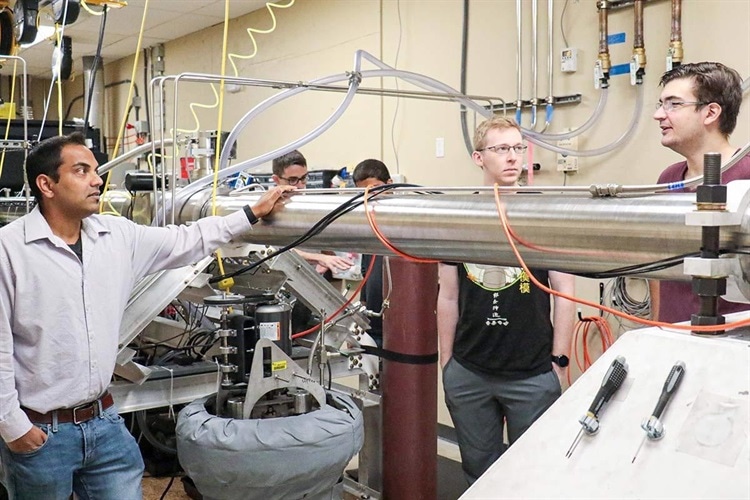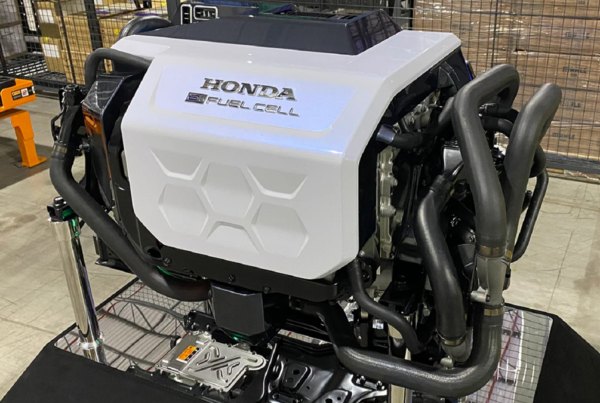
- As part of the government’s effort to achieve 100 percent clean electricity by 2035, the University of Central Florida has received $800,000 from the US Department of Energy to enhance hydrogen fuel research.
A nearly $6.2 million award from the DOE’s Office of Fossil Energy and Carbon Management’s University Turbine Systems Research program was made to seven universities for projects to make hydrogen a highly efficient and high-performing gas to power turbines.
A study like this one is important because it explores the possibility of using carbon-free, clean-burning fuels like hydrogen as an alternative to fossil fuels, which emit greenhouse gases and are linked to global warming. There are a variety of ways to produce hydrogen, which is the most abundant element in the universe. The only combustion byproduct is water.
President Joe Biden of the United States has set the goal of developing a carbon-free power sector by 2035 and a net-zero-emissions economy by 2050. Hydrogen fuel technology may play a key role in achieving such objectives.
In a statement announcing the awards, Secretary of Energy Jennifer M. Granholm said, “Part of our path to a net-zero carbon future means investing in innovation to make clean energy sources like hydrogen more affordable and widely adopted so we can reach our goal of net-zero carbon emissions by 2050.” “These projects will get us closer to realizing the scientific breakthroughs required to build a strong domestic supply chain and high-paying jobs in the emerging clean hydrogen industry.”
China and Japan are also investing billions of dollars in the race to develop hydrogen combustion turbine technology, alongside the United States and the European Union.
The goal of UCF’s initiative is to learn more about how to use hydrogen in modern electricity-generating turbines, including the optimal fuel blends and combustion characteristics.
“The high reactiveness of hydrogen makes it difficult to use hydrogen blended fuels on existing infrastructure, and it also increases the risk of nitrogen oxide generation in the exhaust,” says Subith Vasu, a professor in UCF’s Mechanical and Aerospace Engineering department. “As a result, our team is using our unique experimental facilities to investigate vital, fundamental characteristics of hydrogen fuel combustion and will develop high-fidelity computer models to support the design and development of next-generation hydrogen combustors to make a carbon-free society a reality.”
Artem Masunov, an associate professor in the NanoScience Technology Center and Department of Chemistry at UCF, is a co-investigator on the study. Raghu Kancherla, a postdoctoral researcher in Vasu’s group, will also contribute to this endeavor.
Purdue University, Ohio State University, Georgia Tech, the University of Alabama, San Diego State University, and the University of California, Irvine were among the other colleges that receive DOE prizes.
“We are ecstatic that the DOE has chosen us to conduct this study because we have a track record of collaborating closely with industry to develop innovative gas turbine technologies,” Vasu says.
The DOE picked Center for Advanced Turbomachinery and Energy Research Director and Pegasus Professor Jayanta Kapat to study hydrogen storage as part of a $500,000 award earlier this year, demonstrating UCF’s growing expertise in hydrogen research. The grant will be used to fund research into the viability of a revolutionary hydrogen storage technology known as a Cryogenic Flux Capacitor.
“Hydrogen is critical in global decarbonization efforts, and despite stiff competition from other universities, these two DOE awards demonstrate that UCF CATER researchers are well-positioned to lead hydrogen to decarbonization in all sectors, including power generation, aviation, industry, and space,” says Kapat.
Vasu graduated from Stanford University with a doctorate in mechanical engineering and joined UCF’s Department of Mechanical and Aerospace Engineering, which is part of the College of Engineering and Computer Science, in 2012. He is a member of the University of Central Florida’s Center for Advanced Turbomachinery and Energy Research, a fellow of the American Institute of Aeronautics and Astronautics, and a member of the International Energy Agency’s Task Team on Energy. Vasu has won the DARPA Director’s Fellowship, the DARPA Young Faculty award, the Defense Threat Reduction Agency’s Young Investigator grant, the American Chemical Society’s Doctoral New Investigator award, the American Society of Mechanical Engineers’ Dilip Ballal Early Career award, and the Society of Automotive Engineers’ SAE Ralph R. Teetor Educational award. Many of UCF’s top honors have been bestowed upon him, including the UCF Luminary and Reach for the Stars awards.
Read the most up to date Fuel Cell and Hydrogen Industry news at FuelCellsWorks




